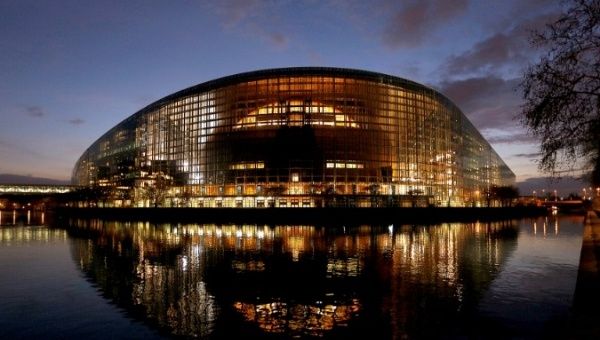
Lawmakers approved the new set of rules in the European Parliament located in Strasbourg. Photo courtesy of Telesur
BRUSSELS, April 18 (NNN-TELESUR) – The European Parliament approved a new set of rules Tuesday to protect whistleblowers from dismissal and legal prosecution across the European Union (EU).
“On the eve of European elections, Parliament has come together to send a strong signal that it has heard the concerns of its citizens, and pushed for robust rules guaranteeing their safety and that of those persons who choose to speak out,” European lawmaker and rapporteur for the law, Virginie Roziere said.
The new rules, adopted with 591 votes in favor, 29 against and 33 abstentions, explicitly prohibit reprisals and introduces safeguards to prevent whistleblowers from facing retaliation such as being suspended, demoted and intimidated. Those assisting, such as facilitators, colleagues and relatives are also protected.
The new rules explicitly prohibit reprisals and introduce safeguards to prevent whistleblowers from facing workplace retaliation suspensions, demotions, or intimidation.
In addition, the legislation ensures safe reporting channels to protect whistleblowers and to keep the information confidential. It allows them to disclose information either to an appropriate legal entity or to competent national authorities. If there is no appropriate action by either of these bodies, or the person believes danger is imminent, they could choose to disclose it publicly.
Currently, only 10 of the 28 EU nations (France, Hungary, Ireland, Italy, Lithuania, Malta, Netherlands, Slovakia, Sweden and the U.K.) provide comprehensive legal protection for whistleblowers. In the remaining countries, protection is only partial or applies to specific sectors or employee categories.
The new standards will affect a wide range of areas including public procurement, financial services, money laundering, product and transport safety, nuclear safety, public health and consumer data protection.
This reform comes as the LuxLeaks, FIFA, and Panama Papers scandals, have shown the importance of whistleblowers to society as a way of providing checks and balances to some of the world’s largest institutions — information revealed could be used to prevent breaches of EU law where public interest and welfare of society is harmed.
According to the European bloc, the law now needs to be approved by EU ministers. After that member states will then have two years to comply with the new set of rules. This legislation will not apply to the ongoing case of WikiLeaks founder, Julian Assange, currently held by British authorities and under extradition request by the U.S. for alleged “hacking” accusations.
NNN-TELESUR



